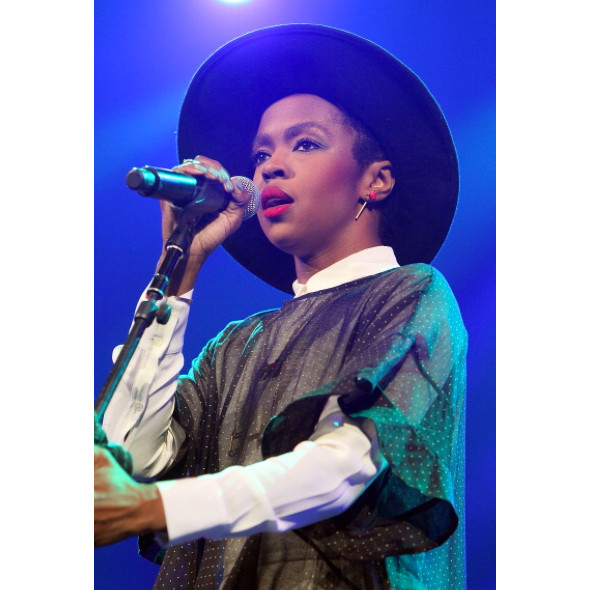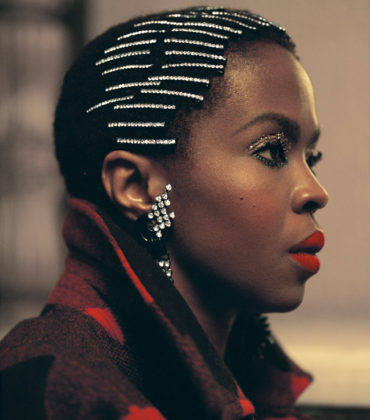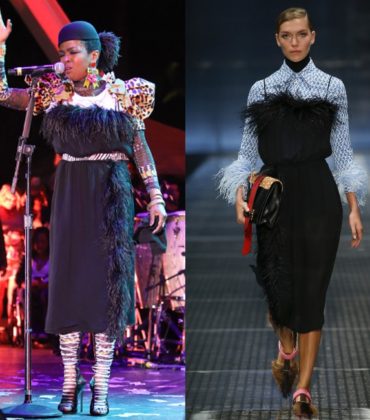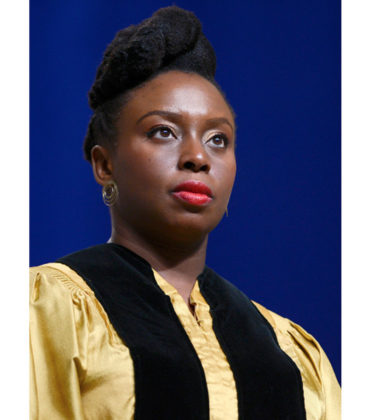
(Jeffrey Ufberg / WireImage)
1. In Defense Of Ms. Hill. It’s finally time to stop letting folks from outside of our community tell us how to feel about Lauryn Hill. by Talib Kweli Greene.
When you pay for a Lauryn Hill concert you are not paying for her to do what you want, you are paying for her to do what she wants. She is not an iPod nor is she a trained monkey. She doesn’t have to do her hits and she doesn’t have to do the songs the way you want to hear them. She doesn’t owe you that. The world does not revolve around you, and you ain’t gotta like it. Get over yourself. If you have a negative experience at her concert, go home, put on The Miseducation of Lauryn Hill and the next time she does come through your town, don’t go to her concert. Problem solved. Just because you had a negative experience at a Lauryn Hill show doesn’t mean her contribution to the world is invalid or deserves to be disrespected.
2. 15 Strange African Women In History You Should Know But Don’t. Do you know that almost everything you enjoy today are traced to the unsung heroism of many African women? We’re about to rediscover each of this African women. by Geleyi.
Even if the writings of history might tempt us to forget how much role African women have played in the history of humankind because quite often, those history are often written by men, with their masculine heroes. In this article, we will pay homage to a selection of the powerful and influential African woman in human history.
3. Ain’t I a Woman, New York Times and Vogue?. by Ronda Lee.
On a daily basis, the media, especially women’s magazines, make it clear that my body type is #LessClassicallyBeautiful. Alessandra Stanley’s article reminded me that not only am I not beautiful, but I am probably an angry black woman, because I am ambitious, aggressive and driven. I recall an interview early in my legal career. As the interview came to a close, the partner looked at me and said, “We’d like to have you on board, but we need to make sure you’re not an ‘Omarosa’ type. You’re not going to come in and try to run stuff.” His use of “Omarosa” type was code for “angry black woman.”
4. Wangechi Mutu: under the skin of Africa. Grotesque and seductive, Wangechi Mutu’s art embraces everything from Tina Turner and cyborgs to rotten milk and war crimes. As her new show opens, the artist talks to Teju Cole about skinning snakes – and seeing mermaids. by Teju Cole.
“The ocean is the source of life,” she says. “We all come from there. I think about these one-celled creatures and I think about the planet. It is related to my obsession with biology, even if it’s only a layperson’s obsession. The way I visualise what’s at the bottom of the ocean is very much to do with how I feel when I’m swimming in the sea.”
5. Why I’m Not Really Here For Emma Watson’s Feminism Speech At the U.N. by Mia McKenzie.
So, can we please stop trying to make Emma Watson the new feminist icon of the universe? She’s not there yet. She’s still learning, I think, just like Beyoncé, who, by the way, rarely even gets the benefit of the doubt from white feminists, let alone hailed as feminist queen of all things, when her feminist expressions are less than perfect. (Imagine if Beyoncé got up at the UN and gave a speech that centered men in the fight for gender equality. The white mainstream feminist skies would rain down hellfire upon us all. Well, some of us, anyway.)
6. A Sexism Problem at The New York Times. Alessandra Stanley, the New York Times writer behind the paper’s much-mocked profile of Shonda Rhimes, has a long history of attacking prominent women in media. by Keli Goff.
7. Ebola, Cholera and the Epidemiology of Anti-Blackness – Or, Black Lives Don’t Matter. “Black lives are demeaned and deemed disposable.”
But beyond the symptoms, the response to cholera in Haiti and Ebola in West Africa has been strikingly similar – though, perhaps, in West Africa the indifference to Black suffering, and the desire to preserve White life, has been startlingly blatant. Indeed, many in North America found out about the Ebola outbreak when news that two white missionaries were given an experimental drug and flown out of the Liberia to the U.S. (at a cost of $2 million for each evacuation and treatment) for further treatment. A third white U.S. citizen was flown to Nebraska for treatment. But warnings of an epidemic had been circulating since late 2013 and by the time news of the White flight reached the shores of the Americas, Ebola had already infected more than 1660 Liberians, killing scores. As of September 18th, there have been 5,300 infected with Ebola and 2,630 deaths, with most of the cases in Liberia, Sierra Leone, and Guinea.
8. FINALLY: Nubian Skin Lingerie Is Making “Nude” Bras In A Variety Of Shades That Work For Women Of Color. Routinely donning items called “nude” in someone else’s skin tone begs the question, “What’s wrong with mine?” by Pia Glenn.
When I told a white friend how excited I was for this company, her first response was “That doesn’t exist yet?!” It amazes me too, that so much progress has been made in certain areas and yet this has remained an industry that caters to an impossibly sparse handful of skin tones. But then I thought about the part I played in that. Between my dance and theater experiences and my personal fatigue at searching and not finding anything, I had just given up.
9. Awkward Black Girl’s Next Misadventure: Her Own Studio. Shadow And Act recently spent time with Issa Rae, her friends, family, and professional team for an in-depth look at how ColorCreative got started, as well as Issa’s life and career, and how she’s built “The Misadventures of Awkward Black Girl” into a full-fledged entertainment brand. by Jai Tiggett.
Sitting at a desk across from producing partner Deniese Davis, Issa is a lot like her “ABG” persona – a layer of self-deprecating humor thinly veils a vibrant spirit, wittiness and genuine insight about society and the entertainment business. She alternately preps for the table read while firing off tasks on her laptop and in between, gives a status update on some of her upcoming projects. She and Larry Wilmore have turned in their final draft of “Non-Prophet,” their script for HBO. “I love it. It’s my voice, and he’s helped me to bring it out in a way that I couldn’t have done alone. It’s about a girl who doesn’t know who she is or where she’s going. It’s relatable and universally specific, which is what I aim for in my content.”
10. The Great 2014 Celebrity Nude Photos Leak is only the beginning. There will always be another leak, because there is always curiosity in the bodies of naked celebrity women. There is always danger in being an Other. by Roxane Gay.
The Great Celebrity Naked Photo Leak of 2014 – or perhaps we should call it The Great Celebrity Naked Photo Leak of August 2014, given that this happens so often that there won’t be only one this year – is meant to remind women of their place. Don’t get too high and mighty, ladies. Don’t step out of line. Don’t do anything to upset or disappoint men who feel entitled to your time, bodies, affection or attention. Your bared body can always be used as a weapon against you. You bared body can always be used to shame and humiliate you. Your bared body is at once desired and loathed.




